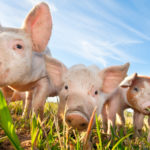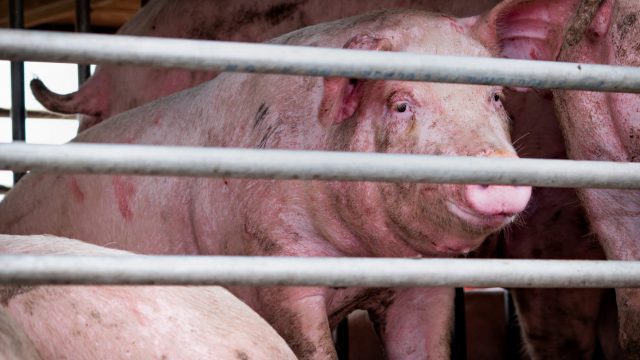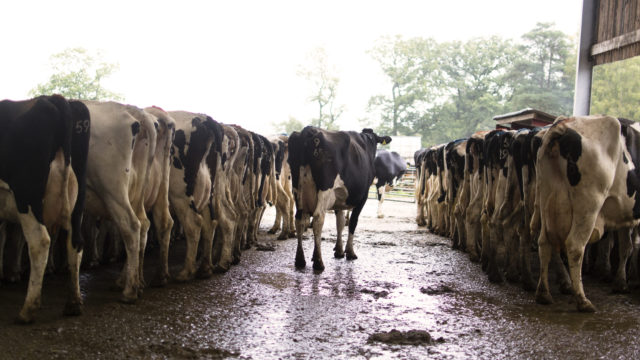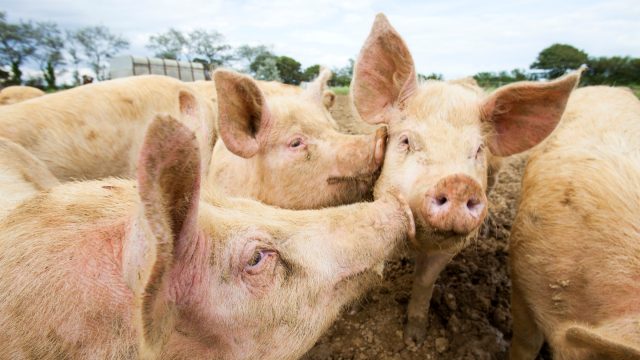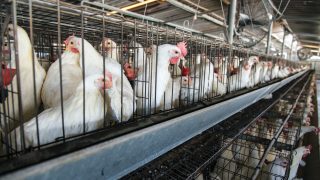
Animal Abuse Should Never Be a Secret – Update on Factory Farm Transparency Lawsuit
Earlier this year, a court ordered the U.S. Food and Drug Administration (FDA) to release previously redacted information relating to hen living conditions on several factory egg farms. The order came more than seven years after the Animal Legal Defense Fund filed a Freedom of Information Act (FOIA) request for these records, and six years after we filed a lawsuit. Our request sought inspection reports of factory egg farms in Texas generated by the FDA under the Egg Safety Rule.
In deference to the egg industry, the FDA refused to make this information public – setting off a legal battle that still continues. The agency is charged with protecting human health, but it can be overly influenced by the industries it regulates, a problem known as “regulatory capture.”
And it’s no surprise that the egg industry wants to keep this information hidden.
Birds in factory egg farms endure intensive confinement and mutilation (including birds’ beaks being removed without painkillers). In March 2019, the FDA appealed the ruling ordering the FDA to release the factory egg farm inspection reports, but the Animal Legal Defense Fund is committed to continuing to fight for these records no matter how long it takes.
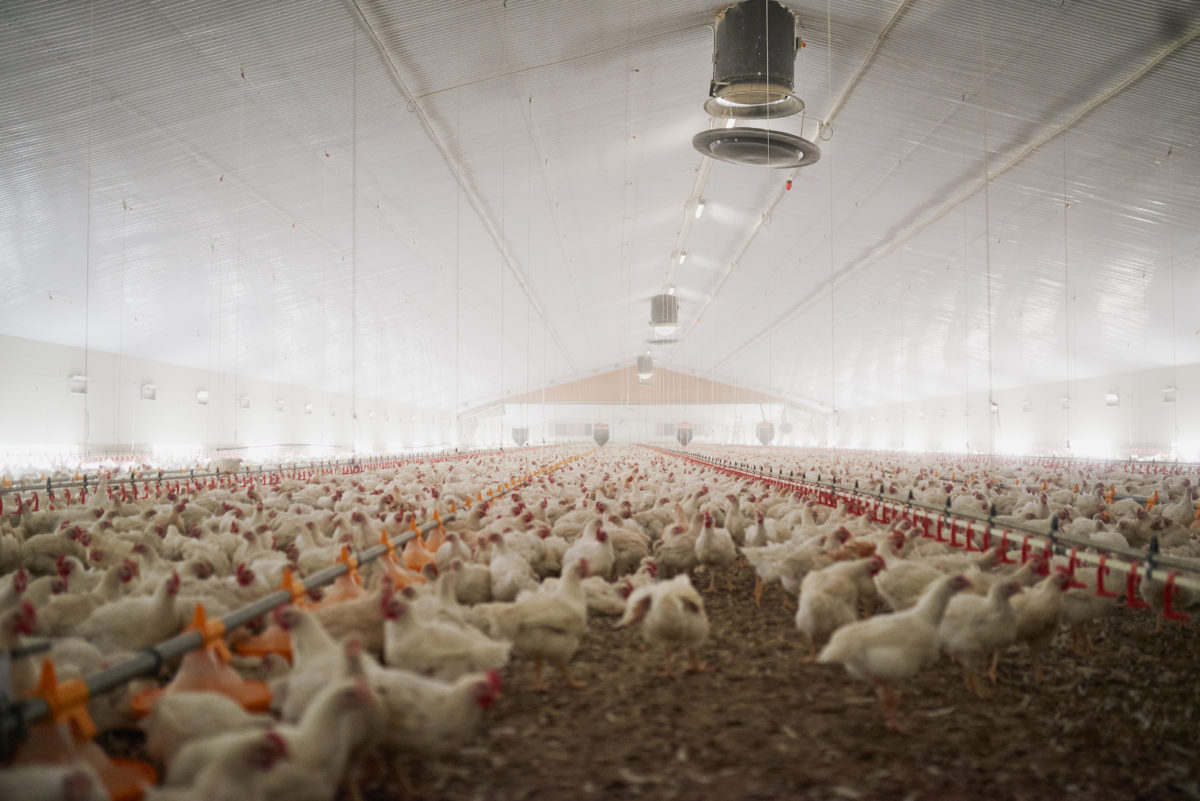
Using the Freedom of Information Act to Protect Animals
Signed into law by President Johnson in 1966, the Freedom of Information Act gives the public the right to request records from federal government agencies. All fifty states have similar laws – also known as “sunshine laws.” Federal agencies must disclose the requested information unless one of nine exemptions, including national security and trade secrets, applies.
Government transparency is critical to protecting animals, and FOIA is one of the most powerful tools to achieve this. The Animal Legal Defense Fund routinely requests documents from government agencies such as the USDA’s Animal and Plant Health Inspection Service and the Fish and Wildlife Service using FOIA. We also rely on FOIA and state sunshine laws to obtain information about programs funded by tax dollars.
Using these laws, we’ve sought release of records on some of the worst roadside zoos in the country, taxpayer-funded invasive experiments on kittens, and investigations documenting egregious violations of the Humane Methods of Livestock Slaughter Act.
Fighting for Factory Egg Farm Records
Unfortunately, sometimes government agencies claim exemptions when they shouldn’t, meaning that the agency is unlawfully withholding information. That’s where we step in. In our factory egg farm transparency lawsuit (Animal Legal Defense Fund v. FDA), the FDA claimed that releasing information about egg production would cause competitive harm to producers.
In other words, the FDA argued that the information fell under one of the nine exemptions – Exemption 4 which protects trade secrets and commercial or financial information from disclosure if its disclosure is likely to cause substantial competitive harm to the party that provided it.
In reality, the FDA is hiding the egg industry’s mistreatment of animals and protecting the industry from public scrutiny. During trial, the Animal Legal Defense Fund successfully proved that the FDA did not provide sufficient evidence of competitive harm to justify its refusal to disclose most of the information.
The value of these records is significant. Birds on factory egg farms are held in wire cages so small that they cannot stand up or stretch their wings – for their entire lives. With so little space, hens defecate and urinate on one another, and dead birds are often left with their cage mates. Pressed up against the confines of their metal cages, birds often suffer feather loss, bruising, and lacerations on their feet. After 1 to 2 years, when egg volume declines, the hens are deemed “spent” and sent to slaughterhouses. These birds never have the opportunity to engage in their natural behaviors like perching, nesting, and taking dust baths.
In addition to the tremendous suffering that confined birds endure, these conditions impact food safety. Eggs from hens in battery cages have higher rates of food-borne-pathogens, such as Salmonella. These records provide critical information about the well-being of the animals as well as the risk of disease outbreaks.
Factory Egg Farm Transparency Lawsuit Continues
On January 23rd, the United States District Court for the Northern District of California issued an order requiring the FDA to disclose the total number of cage tiers per hen house, the total number of floors per hen house, the total number of cage rows per hen house, and the total number of hen houses. The agency was not required to release total hen population.
After the FDA appealed the decision in March, we filed a cross-appeal to preserve our right to obtain this final category of information. The law is on our side – the public has the right to information that implicates both public health and animal protection. We anticipate a decision by 2020.
You Can Protect Animals
Since 1979, the Animal Legal Defense Fund has led the charge to win animals the legal protection they so desperately need—and deserve. Your generous gift will assure that we can continue to take on cases that advance the interests of animals.
Focus Area
How We Work
Related
-
Lawsuit Filed Demanding FDA Respond to Petitions Seeking to Ban Ractopamine
FDA’s approval for ractopamine relied primarily on safety studies conducted by the drugmaker.March 26, 2024 Press Release -
NEPA Carveout for Medium-Sized CAFOs Struck Down by District Court
Animal Legal Defense Fund lawsuit leads to rule revocation excepting medium-sized factory farms from environmental review before receiving federal fundingApril 4, 2023 News -
Fourth Circuit Enjoins North Carolina Ag-Gag Law
The U.S. Court of Appeals for the Fourth Circuit handed an important win to plaintiffs in a lawsuit challenging North Carolina’s Ag-Gag law, ruling that undercover investigations and whistleblowing are considered newsgathering activities protected by the First Amendment.February 23, 2023 Press Release

